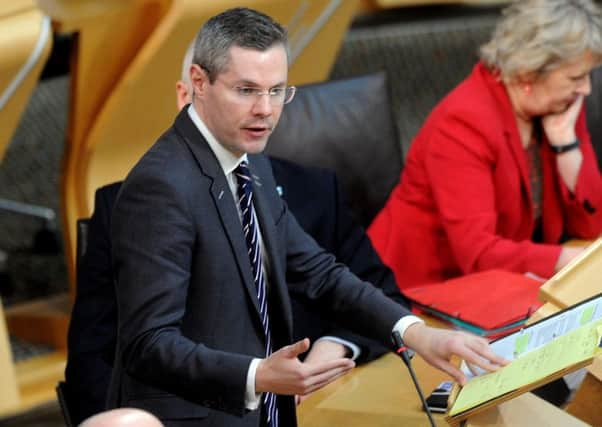Leader: Time to act now on business rates


It not only sustains our capital city throughout the year but is also a life-saver for many of our rural communities in the Borders and Highlands. Overall, its 8,400 businesses account for 10 per cent of all employment. And that contribution is especially important when other sectors such as manufacturing are, as now, under pressure.
But it has had to bear a disproportionate burden of business rates – and for a sector comprising many small, family-owned and run firms, this burden is acute.
Advertisement
Hide AdAdvertisement
Hide AdScottish Parliament research reveals that non-domestic rates for companies in the hotels and food services sector now amount to an average 11.6 per cent of operating profit – more than three times the figure across the whole of the economy. Protests have been rising since hotels found themselves facing increases in their annual rates bills of 37 per cent.
As a labour-intensive, people-focused industry it also faces cost pressures from the introduction of the National Living Wage and calls for a tourism tax. The case for change here is now compelling.
The Scottish government recognised as much when it set up a flagship business rates review under the chairmanship of former RBS banker Ken Barclay. And earlier this year Finance Secretary Derek Mackay was forced to provide emergency relief for firms in the catering sector when he announced a cap on 2017-18 bill increases at 12.5 per cent through a new national relief scheme.
But the package was dismissed by retailers as “another sticking plaster on the suppurating wound” of an unreformed business rates system.
Pressure has continued to grow from small business and hospitality lobbies. Their chief concern is that the relief will only last one year and will not stop the proposed rateable value increases.
Rates bills are set to rise substantially from 2018 onwards. Businesses have been advised to have their rates assessments reviewed as failure to submit an appeal by the end of next month will lead to a loss of right to challenge any future rates bills, potentially resulting in excessive rates bills until 2022.
Sector representatives have also questioned the Scottish assessors’ valuation methodology – which in many cases results in excessive rates assessments. Mr Mackay should delay reform no longer.